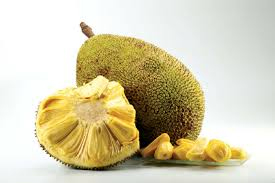Why Washing Dishes is Unnecessary (Or How Sin Changed Our Dietary Habits)

At one point in my life, I learned to enjoy cleaning dishes that it became a relaxing meditative chore, totally against my earlier universal youthful disdain for it. Dishwashing became one of the most disputed household activity in my childhood, until my mother set up a schedule which brought a relative peace and an effective teaching on humility and responsibility.
Scrubbing the floor using a coconut husk was a fun chore for some reason I have only come to realize now. It was an assigned task at school and, as “monitors” (our teachers’ clever way of avoiding the word “janitors”), we tried to outdo one another in producing the shiniest portion of the classroom floor, all the while talking and laughing. The tedious task, to our teachers’ delight, became a game and a coveted activity. But not dishwashing; it is a boring and demeaning task for many, especially kids.
What if our teachers had taught us to wash dishes in school? I know they do it to pre-school kids after their meals. But unlike cleaning floors which can be done once a week or even less frequently, cleaning dishes happens two or three times a day and you get to do it alone in one dark corner of the house. So you feel like a dunce being punished; and that is how it still feels for many of us after years of serving the sentence as dishwashers from childhood into our pre-adulthood years. And until now!
Even in restaurants, in general, the dishwasher is the least-paid worker and also the most despised for having the noisiest and messiest work. Remember the dishwasher, Linguini, in the animation film Ratatouille and how the chef-rat, Remy, judged him as a “nobody”? Think of all the clutter a dishwasher has to put up with – dirty dishes and utensils, stained saucers and cups, leftover meat, soup and bones, stained napkins, used toothpicks and, perhaps, a filthy dental floss!
A writer once said that what used to be a task done only at home has become a regular, income-generating employment which thousands, including many of the wealthy and famous, have labored at earlier in life. Consider all the out-of-school individuals, students and adults today who hold a part-time or full-time job as dishwasher which does not provide them a clear career path other than that of being promoted to a cashier, cook or supervisor in a fastfood restaurant. Only in movies do you see a rat becoming a chef! For many of us, we run in a rat race that requires us to take on menial jobs while we silently dream of making it big somehow.
So, why do we say washing dishes is unnecessary when the global trillions-of-dollar restaurant business depends on dishwashers to operate? And we all have to clean our dishes; otherwise, we would not be able to eat on clean plates afterward. What is more necessary than that? It is like going to sleep so we can all wake up refreshed.

A thing is necessary when it leads to accomplishing an essential purpose. For instance, sleeping leads to a rejuvenated body that is designed to operate optimally for several decades. Therefore, clean plates are necessary for eating — which is a prerequisite to living optimally for several decades. So, to make the sudden game-changer, why could we not invent plates that clean themselves; or, as some people do, why not use throw-away plates and utensils? But this is an expensive and impractical alternative. Reusing porcelain or plastic plates is a much better option.
But let us beg the question and ask: What if we did not have to use plates at all? Or what if we only ate food that came right out of the source, such as fruits? And one or two satisfied our hunger and our need for essential sustenance for a day or more? And doing so, we only need fresh and unprocessed food to go on living, well, optimally, if not perpetually. That would make washing dishes obsolete or, as we say, unnecessary and even unheard of in a life that also requires no work to till the soil or eke out a living from the land.
Wait, this brings us to a utopian condition or that illusory world of spirits. Spirits do not need to eat as humans do. And sages or prophets tend to make a career out of fasting as a means of attaining enlightenment. It remains consistent with our convenient premise, since the ultimate goal of the spiritual life seems to eliminate or minimize dishwashing.
And it does. Dishwashing is a symbol of human slavery. Sin brought us under the curse of the ground. Whereas it used to bless humans with life-perpetuating, not just life-sustaining, food, we now have to sweat it out in order to make the land grow food for us. And even then, we still succumb to the ground’s hunger for our decaying body. We become the food served on the plate for worms and bacteria to feast upon. And their plate needs no cleaning; for they leave nothing behind, not even the plate. We try to escape their ultimate task of “cleaning us off” through fancy coffins and palatial tombs; but death conquers us all.
The only escape from this physical corruption of humans and our inescapable slavery to work, whether cleaning dishes, scrubbing the floor or running a business, is to go back to that point where humans left off from eating pure and uncorrupted food in Paradise. No, we do not mean merely going back to Eden but returning to that state of life when humans can eat from the plate of pristine Creation — and we eat not to live but because we live.
For it is foretold that in the Heavenly Jerusalem, the Tree of Life will bear twelve fruits, one fruit for every month of the year. Amazing! First, if it is the Tree of Life, then it means anyone who eats its fruits will not die like we do. Second, if it serves a variety of fruits, then it means we will be fully satisfied and not just make do with what a limited restaurant menu or family meal covers. Thirdly, if the Tree does not die then it will not fail to bear fruit, and we will always have a source of sustenance. Finally, since it will remain forever, we will never have to work in order to eat and survive. Work, especially washing dishes, will become unnecessary. So there!
That vision tells us that in a life envisioned by God for humans, work is unnecessary. This is the whole point of this discussion. Slavery and servitude, whether to ourselves, to others and to oppressors, will cease. Until that time, as faithful believers, we are in this world but not of this world. We eat and work not merely to survive but show people there is a much better plan than what this world offers or forces us to do in exchange for temporary life, money, glory or even power.
So, if every believer that God converted were to die immediately to join Him in Heaven, who will be left to teach the world? Adam and Eve did not die right away when they sinned; they had to suffer the consequences of sin. Yes, even when we are forgiven through Christ’s blood, we must still suffer and work just as He did. And His work is not burdensome. Even cleaning dishes can then be a pleasant, albeit an unnecessary, task for redeemed people who long to eat freely from the Tree of Life.
It is rather appropriate that Jesus would condemn the Pharisees for their hypocrisy and their morbid love for their traditions – traditions which made an art and a farce of cleaning dishes!
“Woe to you, scribes and Pharisees, hypocrites! For you cleanse the outside of the cup and dish, but inside they are full of extortion and self-indulgence. Blind Pharisee, first cleanse the inside of the cup and dish, that the outside of them may be clean also.” (Matthew 23:25)
Those who make a show (complete with reruns and all the hype) of something that is unnecessary, as we have shown, will receive nothing. Their servanthood is based on empty rituals and not the substance of life expected of true servants who serve God in truth and in spirit, as well as in secrecy. Beware then of those who make a display of dishwashing (and any form of service before the applauding or beholden crowds) for they are descendants of the Pharisees whom Christ already condemned for us. Our best attitude is to avoid them for they serve the world and their god Mammon and not the true God in Heaven. And so it goes for all other traditions that people perform to show their presumed service to God: burnt sacrifices, sacred rituals, tithes and idol-worship. The old world is dead and about to fade away completely! The new is coming!
Washing dishes (and genuine serving, in general) is not a sublime tradition or ceremony we are obliged to do in front of people in order to please God. It is, first and foremost, a sign of our slavery to sin and to this world. Although Pharisees cleverly used their hypocritical service to make people believe they were serving God, the true believer serves only God in humility and sincerity of faith. We can then wash dishes (not just our own plates but also those of others) as a sign of our service to our God, in the same manner that we obeyed our parents as children. Until such time when it becomes completely unnecessary as we will serve God the way Adam and Eve did — before their dietary habits changed.
- Previous: How to Become a Naturalist
- Next: Prudence (And How to Ride a High Horse)